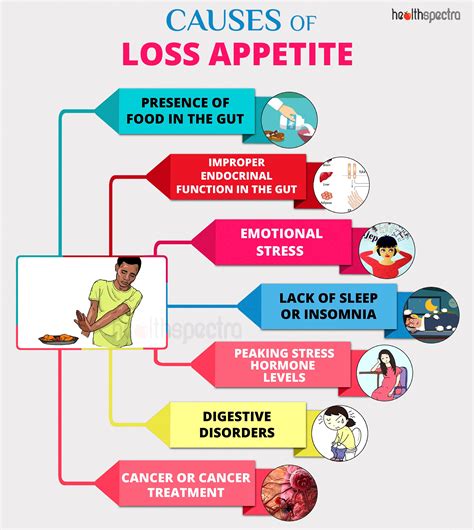
Appetite Loss
Published Date: 6/17/2023 6:03:41 AM
- Appetite loss or poor appetite are common side effects of cancer and its treatment. This means that you may eat less than usual, not feel hungry at all, or feel full after eating only a small amount.
- Ongoing appetite loss may lead to serious complications. These include weight loss, not getting the nutrients that the body needs, and fatigue and weakness from muscle loss, which is called cachexia. These issues can slow recovery and lead to breaks in treatment.
- It is important to talk with your health care team if you lose your appetite. They can help find the cause and make sure you are getting the nutrition you need.
Causes of appetite loss:
Many different things can cause appetite loss in a person with cancer:
- Changes in metabolism, which are the body’s process of breaking down food and turning it into energy.
- Cancer inside the abdomen, which may cause irritation or swelling.
- An enlarged spleen or liver, which pushes on the stomach and creates a feeling of fullness.
- Ascites, which is a buildup of protein-filled fluid in the abdomen that may create a feeling of fullness.
- Medications, including chemotherapy, immunotherapy, and other drugs.
- Radiation therapy or surgery to any part of the gastrointestinal organs, such as the stomach or intestines.
Alongside a loss of appetite, people may experience the following symptoms:
- stomach pains
- heartburn
- feeling full quickly
- yellowing of the skin or eyes
- blood in their stools
Treatment:
- A doctor may prescribe certain medications to help increase appetite and reduce other symptoms, for example, nausea.
- If depression or anxiety are causing people to experience a loss of appetite, talking therapies and sometimes antidepressants can help.
- If a doctor thinks a specific medication is a reason for a loss of appetite, they may be able to change the dosage or the medication.
Ayurvedic Medicine:
- Harboliv
- Enzyme Syrup
Home remedies:
- People may find it easier to eat several smaller meals a day instead of three bigger ones.
- Aim to make these meals high in calories and protein to make sure the body is getting plenty of nutrients and energy. People may also find having liquid meals, such as smoothies and protein drinks, easier to take.
- Adding herbs, spices, or other flavorings to meals may also encourage people to eat more easily. Eating meals in relaxing or social settings may make eating more enjoyable.
- People can also keep drinking plenty of fluids to prevent dehydration. Gentle exercise, such as a short walk, may sometimes increase appetite as well.
Mudra Therapy for Appetite Loss: